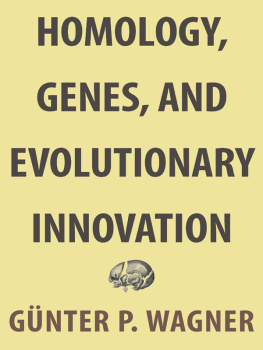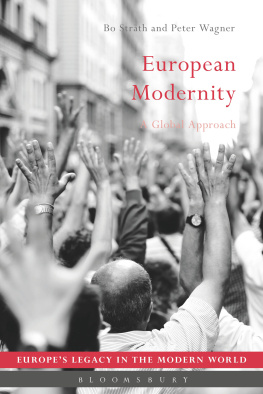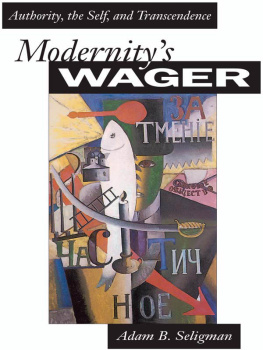Copyright Peter Wagner 2012
The right of Peter Wagner to be identified as Author of this Work has been asserted in accordance with the UK Copyright, Designs and Patents Act 1988.
First published in 2012 by Polity Press
Polity Press
65 Bridge Street
Cambridge CB2 1UR, UK
Polity Press
350 Main Street
Malden, MA 02148, USA
All rights reserved. Except for the quotation of short passages for the purpose of criticism and review, no part of this publication may be reproduced, stored in a retrieval system, or transmitted, in any form or by any means, electronic, mechanical, photocopying, recording or otherwise, without the prior permission of the publisher.
ISBN-13: 978-0-7456-5290-0
ISBN-13: 978-0-7456-5291-7(pb)
ISBN-13: 978-0-7456-5684-7(Multi-user ebook)
ISBN-13: 978-0-7456-5689-2(Single-user ebook)
A catalogue record for this book is available from the British Library.
The publisher has used its best endeavours to ensure that the URLs for external websites referred to in this book are correct and active at the time of going to press. However, the publisher has no responsibility for the websites and can make no guarantee that a site will remain live or that the content is or will remain appropriate.
Every effort has been made to trace all copyright holders, but if any have been inadvertently overlooked the publisher will be pleased to include any necessary credits in any subsequent reprint or edition.
For further information on Polity, visit our website: www.politybooks.com
To Asteris Stefan
Preface
Fifty years ago, the globe was neatly divided into three areas: the First World of liberaldemocratic industrial capitalism, the Second World of Soviet-style socialism, and the Third World of so-called developing countries. Within the First World, there was a clear view about how to understand the present of the time. The First World only was composed of modern societies, which were superior to all others because they had institutionalized freedom and had developed an institutional differentiation according to functional needs. In this view, the Second World societies had embarked on an erroneous path which they could only maintain at the risk of perishing in the system competition with the First World; and the societies of the Third World were in the process of following the First one in processes of modernization and development. Only First World societies, thus, were modern in the sense of being in their own time. The Second World had aimed to create its own, specific future but necessarily failed; and the Third World needed to catch up to reach the present. This was the time when our sociological thinking about modern society and modernization emerged as an extremely coherent attempt at understanding the present of that time.
But it is no longer our time and arguably no longer our modernity. The world has changed considerably and much beyond the sociological imagination of anyone writing in the 1960s.
The western societies of the 1960s were industrial societies, built on the innovations of the so-called Second Industrial Revolution, with electrical engineering, chemical engineering and the combustion engine, and the possibility of a post-industrial society just beginning to be considered. Now, we speak of knowledge societies in the wake of a Third Industrial Revolution based on electronic engineering and producing the new information and communication technologies that enhance global interconnectedness.
During the 1960s, governments believed in crisis-free national economies that were steered by Keynesian demand management techniques. Now, most of the economic policy institutions of that time have been dismantled in the wake of a new belief in market self-regulation, and the global capitalism that resulted from this change has already entered into a deep crisis, comparable only to the Great Depression of 1929, which many economists thought was the last one ever. And, across the last half-century, we have also witnessed the rise of regional economies to world competitiveness first Japan, then Taiwan and South Korea, now China, to mention only a few that are not based in the cultural context of Protestantism and its social ethic which many sociologists had considered a requirement.
The 1960s were the peak of the era of decolonization, witnessing the rapid dismantling of European empires, but it was expected that the new states and societies would emulate the western model and, given that they were late, would keep lagging somewhat behind. Now, we know that liberation from western dominance can also mean a fundamental challenge to the model of modernization, as in the case of the Iranian Revolution of 1979 and the rise of Islamism, or at least the emergence of distinct varieties of modernity, for the creation of which local problem-solving is more important than the look to the West. The new powers in the world such as China, India, Brazil and South Africa emerge from different historical trajectories, such as experiences of a regional version of communism, colonial domination, extreme inequality in an entrenched oligarchic setting or apartheid, and their modernities are bound to be shaped by those experiences, and sometimes now their choices are seen as models to be emulated elsewhere.
Of the changes over the last fifty years, democratization is the one that was most predicted modern societies were supposed to be democratic polities but both the speed of change after a long period of persistent authoritarianism in the world (benevolently viewed by western powers, we should add) and its consequences were highly unexpected. Political scientists now speak of waves of democratization as something self-evident, and they refer to the end of military dictatorships in Southern Europe in the 1970s, followed by South Korea and Latin America, and then the demise of Soviet-style socialism in Eastern Europe from 1989, the end of apartheid in South Africa during the same years, and now the democratic movements in Northern Africa and the Middle East, which still have to bring democratic regimes about. Two aspects tend to be forgotten when seeing something like a natural process at work in democratization. First, the world of the 1960s appeared neat and stable largely because it was undemocratic. The United States of America feared democracy in Latin America; Europe feared democracy in the Muslim Maghreb; the modern Kemalist government in Turkey feared Islamic and Kurdish expression in its own society; Israel feared democracy in Palestine; and these fears are far from over. When global modernity becomes truly based on collective self-determination, the world will have changed. Second, democracy in the 1960s meant collective self-determination within the well-defined boundaries of nation-states, and the assumption was that such societies could indeed determine their own destiny because they were separate and distinguishable from other societies in the world. Now we may have more democratically constituted societies, but global interdependence may mean that those collectivities have very little to indeed decide and determine.
In sum, technology, economy and politics have changed beyond recognition in the world over the past half-century. If a part of the world was seen as a modern society then, its modernity was radically different from the modernity of our present. If other parts of the world then were seen as having to face modernization, they have interpreted this challenge often in very different ways from those expected. For these reasons, an attempt at understanding our present time cannot rely on the tools and concepts of even such a seemingly recent past as that of the 1960s. This book thus aims to provide a renewed reflection about modernity with a view to better understanding our present time.



















